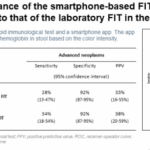2025-06-05 北京大学(PKU)
<関連情報>
肥満または過体重の中国人成人における週1回投与のマズドチド Once-Weekly Mazdutide in Chinese Adults with Obesity or Overweight
Linong Ji, M.D., Hongwei Jiang, M.D., Yan Bi, M.D., Hua Li, M.D., Junhang Tian, M.D., Dexue Liu, M.D., Yuzhu Zhao, M.D., +16 , for the GLORY-1 Investigators
New England Journal of Medicine Published: May 24, 2025
DOI: 10.1056/NEJMoa2411528
Abstract
Background
Evidence suggests that incretin-based dual agonist pharmacotherapy is helpful in persons with obesity. Mazdutide, a glucagon-like peptide-1 and glucagon receptor dual agonist, may have efficacy in persons with overweight or obesity.
Methods
In a phase 3, double-blind, placebo-controlled trial in China, we randomly assigned, in a 1:1:1 ratio, adults 18 to 75 years of age who had a body-mass index (BMI; the weight in kilograms divided by the square of the height in meters) of at least 28 or had a BMI of 24 to less than 28 plus at least one weight-related coexisting condition to receive 4 mg of mazdutide, 6 mg of mazdutide, or placebo for 48 weeks. The two primary end points were the percentage change in body weight from baseline and a weight reduction of at least 5% at week 32, as assessed in a treatment-policy estimand analysis (which assessed effects regardless of early discontinuation of mazdutide or placebo and the initiation of new antiobesity therapies).
Results
Among 610 participants, the mean body weight was 87.2 kg and the mean BMI was 31.1 at baseline. At week 32, the mean percentage change in body weight from baseline was –10.09% (95% confidence interval [CI], -11.15 to -9.04) in the 4-mg mazdutide group, –12.55% (95% CI, -13.64 to -11.45) in the 6-mg mazdutide group, and 0.45% (95% CI, -0.61 to 1.52) in the placebo group, and 73.9%, 82.0%, and 10.5% of the participants, respectively, had a weight reduction of at least 5% (P<0.001 for all comparisons with placebo). At week 48, the mean percentage change in body weight from baseline was –11.00% (95% CI, -12.27 to -9.73) in the 4-mg mazdutide group, –14.01% (95% CI, -15.36 to -12.66) in the 6-mg mazdutide group, and 0.30% (95% CI, -0.98 to 1.58) in the placebo group, and 35.7%, 49.5%, and 2.0% of the participants, respectively, had a weight reduction of at least 15% (P<0.001 for all comparisons with placebo). Beneficial effects on all prespecified cardiometabolic measures were seen with mazdutide. The most frequently reported adverse events were gastrointestinal and mostly mild to moderate in severity. The incidence of adverse events leading to discontinuation of the trial regimen was 1.5% with the 4-mg mazdutide dose, 0.5% with the 6-mg mazdutide dose, and 1.0% with placebo.
Conclusions
In Chinese adults with overweight or obesity, once-weekly mazdutide at a dose of 4 mg or 6 mg for 32 weeks led to clinically relevant reductions in body weight. (Funded by Innovent Biologics; GLORY-1 ClinicalTrials.gov number, NCT05607680.)


